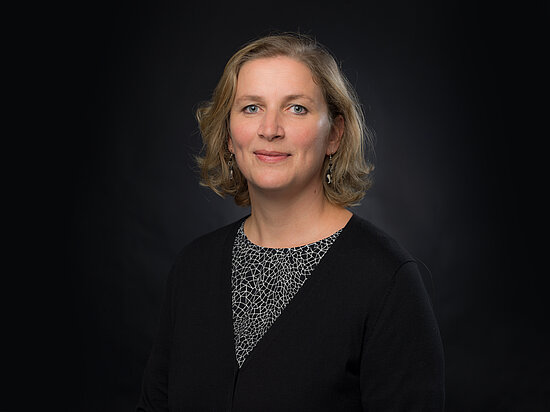Prof. Larisa Kasumagić-Kafedžić

CG1: Peacebuilding and Intercultural Dialogue in Adult Learning and Education
Co-Moderator: Assoc. Prof. Dr. Larisa Kasumagić-Kafedžić
Insecurity, violent confrontations, and societal polarisation are all becoming more prevalent in today's extremely complicated world.
Adult learning and education (ALE) should not evade its responsibility to contribute to peacebuilding and promoting intercultural dialogue as a way of facing these challenges. Peacebuilding features as a prominent topic in UNESCO’s documents from 1974 Recommendation concerning Education for International Understanding, Co-operation and Peace and Education relating to Human Rights and Fundamental Freedoms to CONFINTEA VII stressing ALE as an important mechanism for implementing, among others, SDG 16 dedicated to building just, peaceful, inclusive, violence free-societies. This role is also reaffirmed in the most recent GRALE 6 Working Paper, where ALE in conflict and post-conflict reconstruction is included among the four key topics. UNESCO’s flagship report, We Need to Talk: Measuring Intercultural Dialogue for Peace and Inclusion, published in 2022, demonstrates the link between intercultural dialogue and peace. However, the intensity and modalities of implementation of ALE in peacebuilding and intercultural dialogue vary across societies, starting with the conceptualisation of interculturality, which is shaped by the historical and socio-political landscape of each individual society.
The relevance of peacebuilding, understood as a core societal value, extends beyond (post)conflict societies and includes those facing political tensions and social polarization. This further reflects on modes of integrating peacebuilding into ALE, designing learning opportunities, thematic focus, and educators’ competencies. ALE for peacebuilding and intercultural dialogue can take up different forms (education programs, initiatives, movements) and employ a variety of learning techniques (e.g., role plays, case studies, discussions, coaching, etc.).
The expected learning outcomes of this comparative group are: (1) to analyse approaches to peacebuilding and/or intercultural dialogue in ALE in different countries; (2) to understand how these approaches are shaped by the broader socio-cultural and political context of the given country.
- Kasumagić-Kafedžić, L. & Clarke-Habibi, S., Co-edited Book Volume, Editors (2023). Peace Pedagogies in Bosnia and Herzegovina: Theory and Practice in Formal Education. Springer.
- Kasumagić-Kafedžić, L., Dedić-Bukvić, E., Forić-Plasto, M. (2022). Democratic culture and peace pedagogy in teacher education. The European Wergeland Centre, Council of Europe.
- Kasumagić- Kafedžić, L. (2019). Učiti zajedno, učiti živjeti zajedno: Interkulturalnost u savremenoj nastavi engleskog jezika (Learning together, learning to live together: Interculturalism in contemporary English language didactics). Dobra knjiga, Sarajevo.
- Kasumagić-Kafedžić, L. & Clarke-Habibi, S. (2025). Transitions in Education and Peacebuilding across Bosnia and Herzegovina: Reclaiming the Human and Relational Dimensions of Teaching and Learning. Journal of Southeastern Europe 48 (2024). 267-296.
- Kasumagić-Kafedžić, L., & Mulalić, L. (2024). Challenging Divisions Through Teacher Education and History Teaching: The Case of Bosnia and Herzegovina. CEPS- Center for Educational Policy Studies Journal, 14(4), 81-101.
- Kasumagić-Kafedžić, L. (2024). Foreword in the Book Voices of Courage and Vulnerability: Teaching English in a Society at War (Ukraine 2022-2023), edited by Roxanna Senyshyn & Andrea Lypka. Sunshine TESOL Press
- Pace, J.L.& Kasumagić-Kafedžić, L. (2021). Teacher education for democracy in Sarajevo and San Francisco: Pedagogical tools to connect theory and practice, Citizenship Teaching & Learning, 16:3, pp. 397–15.
- Millican, J., Kasumagić-Kafedžić, L., Masabo, F., Almanza, M. (2021). Pedagogies for peacebuilding in higher education: How and why should higher education institutions get involved in teaching for peace? International Review of Education 67, UNESCO Institute for Lifelong Learning and Springer Nature B.V. 2021, 569–590.
- Kasumagić- Kafedžić, L. (2021). Exploring Challenges and Possibilities in Pre-service Teacher Education: Critical and Intercultural Pedagogy in Post-conflict Bosnia and Herzegovina. Research Anthology on Developing Critical Thinking Skills in Students. Information Resources Management Association. IGI Global.
Peace Education, Intercultural and Peace Pedagogies, Applied Linguistics and Language Education, Teacher Development, Action Research.
For the past 25 years, Larisa has been actively involved in peaceful actions, community youth development programs, the philosophy of nonviolence, teacher development, and intercultural pedagogy in language education. She holds an MPS in International Development and Education from Cornell University (USA) and a Ph.D. in English Language Pedagogy and Intercultural Education from Sarajevo University. She is an associate professor at the Faculty of Philosophy of the University of Sarajevo. Her research interests are in the fields of intercultural education, peace pedagogy, language education, teacher training, and action research in teacher development. She is also the founder and president of the Peace Education Hub established at the University of Sarajevo in early 2020.


